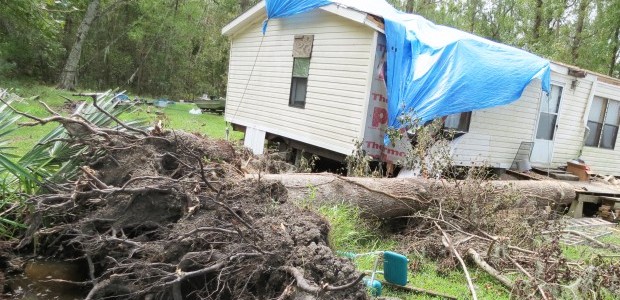Political calculations follow Isaac
September 12, 2012
AG issues contractor fraud warning in Hurricane Isaac’s wake
September 12, 2012As waters from Hurricane Isaac continue to recede or dry up, local residents are urged to take precautions against the expected increase of mosquitoes, as this year’s West Nile virus outbreak is expected to be the worst in U.S. history.
“Right now, the Center for Disease Control is seeing cases in practically every state in the country,” Dr. David Seaberg, president of the American College of Emergency Physicians, said in printed statement. “This is a problem that affects everyone, everywhere. But simple steps can stand in the way of a person being infected with West Nile.”
At the state level, the Department of Health and Hospitals has been keeping a close eye on any outbreaks following Hurricane Isaac.
“DHH staff has been working around the clock in all parts of the state to ensure the health care needs of the people of Louisiana are met during and after Hurricane Isaac,” said DHH Secretary Bruce D. Greenstein in a printed statement. “Even without the latest numbers, we know the West Nile virus is active in our state. Louisiana is experiencing the highest West Nile virus case rate since 2006 and we expect the numbers to continue to rise. Every Louisianian should own their own health and take the necessary precautions against mosquito bites to protect themselves and their loved ones.”
According to DHH, there have already been 145 cases and nine deaths in the state from West Nile virus this year, and following a hurricane, DHH’s Infectious Disease Epidemiology Section, which tracks the state’s West Nile cases weekly, checks emergency rooms and shelters to keep an eye on the spread of any infectious diseases. Due to the checks and the closure of many health care facilities during the storm, there is a delay in the reporting of any new cases.
Nationally, 47 states have reported more than 1,100 West Nile cases, including 41 deaths this year. CDC numbers put 74 percent of these cases in Texas, Mississippi, Louisiana, South Dakota and Oklahoma.
“There have been no human infections of the West Nile virus in Terrebonne Parish,” said Terrebonne Parish Public Works Director Greg Bush. The public works department is in charge of contracting mosquito spraying for the parish.
The virus, which is spread by mosquitoes, sometimes causes only mild, flu-like symptoms in less than a fourth of the cases, according to the CDC, and four out of five who are infected show no symptoms at all. In the rarest of cases, those infected may develop severe symptoms like high fever, disorientation, coma, tremors, convulsions and vision loss. The virus can even cause permanent neurological damage and death.
As the threat of West Nile grows, the rain and floodwaters from Hurricane Isaac will help the mosquito population grow, and Bush offered the simplest tip for residents to help safeguard against the bugs.
“Residents should remove any standing water they can from their property,” Bush said. “Dump out water from any trash cans, pails or buckets to keep them from breeding.”
Immediate floodwaters from a hurricane can help to lower a mosquito population by moving stagnant water, but in the weeks following a storm, standing waters left by the storm provide ample breeding ground.
“I have not seen the results of last week’s testing and population counts,” Bush said. “Initially, population numbers will be low for a week or two (following a hurricane), but they will bounce back. After Hurricane Gustav, the National Guard sprayed here three times. We will wait until next week’s population results and then determine if we need to spray. If the National Guard denies our request, we will do the spraying.”
Terrebonne Parish’s contracted sprayer, Jessie Boudreaux of Cajun Mosquito Control, is leading the fight against mosquitoes.
“We have been fighting West Nile and we will continue to fight West Nile,” he said. “The hurricane has been very busy and stressful for everyone. My workers will be doing landing rates and data analysis to see if the rain is making a difference in the populations. We have already seen a significant increase and, by the end of the week, we should have a better indication of what to expect. We are anticipating a large hatch off.”
According to Boudreaux, even a tropical storm can cause a huge increase in the local mosquito population.
“Tropical Storm Lee last year spawned a major hatch off,” he said. “It doesn’t have to be a big storm to increase the population. Dormant eggs may hatch due to coastal flooding, and after the mosquitoes hatch, they move will north from off the coast and will probably be here in the next few days.”
EDITOR’S NOTE: View safety precautions suggested by the state Department of Health and Hospitals online at www.tri-parishtimes.com.








